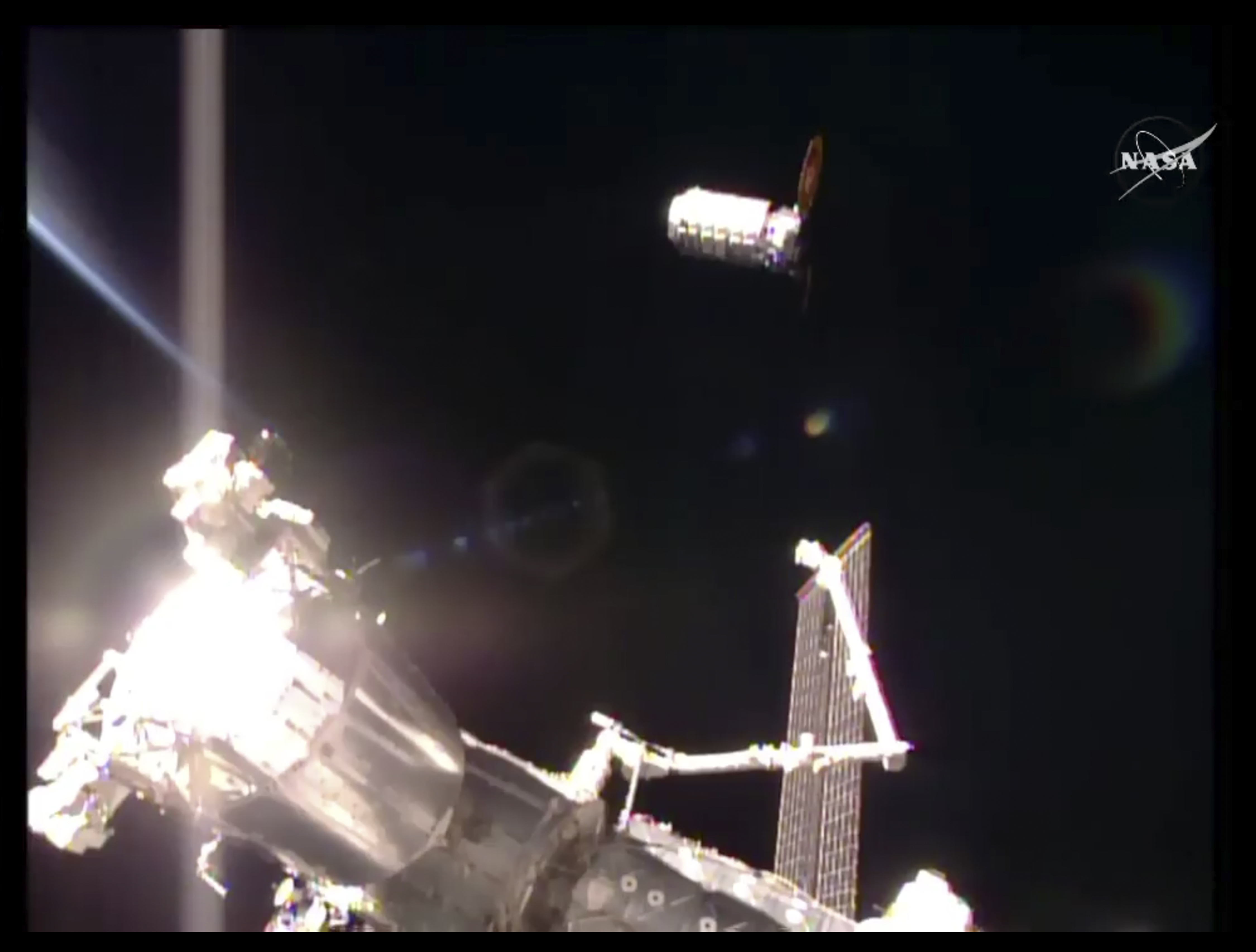Cape Canaveral, Fla. (AP) – A supply ship bearing John Glenn’s name arrived at the International Space Station on Saturday, April 22.
Astronauts used the station’s big robot arm to grab the capsule, as the craft flew 250 miles (400 kilometers) above Germany.
NASA’s commercial shipper, Orbital ATK, named the spacecraft the S.S. John Glenn in honor of the first American to orbit Earth. It rocketed from Cape Canaveral, Florida, on Tuesday, April 18, with nearly 7,700 pounds of food, experiments and other goods.

Glenn died in December at age 95 and was buried earlier this month at Arlington National Cemetery. His widow, Annie, granted permission for Orbital ATK to use his name for the Cygnus spacecraft. The company, in fact, sent up some memorabilia for the Glenn family.
Glenn made history in 1962 when he soared into orbit aboard Friendship 7, his one-man Mercury capsule. He returned to space in 1998 aboard shuttle Discovery, at age 77, right before station construction began in orbit.
Space station commander Peggy Whitson – who on Monday set a U.S. record for most accumulated time in orbit – notified Mission Control when S.S. John Glenn was captured.
“We’re very proud to welcome on board the S.S. John Glenn,” said French astronaut Thomas Pesquet, who took part in the operation. The contents “will be put to good use to continue our mission of research, exploration and discovery.”
Whitson and Pesquet have been living on the space station since November, along with a Russian. They were joined by another American and Russian on Thursday.
Whitson is making her third space station flight. Early Monday, she will surpass the 534-day, two-hour-and-change mark set by astronaut Jeffrey Williams last year.
The S.S. John Glenn, meanwhile, will remain at the orbiting outpost until July, when it is let go to burn up in the atmosphere.
Online:
NASA: https://www.nasa.gov/mission_pages/station/main/index.html
Orbital ATK: https://www.orbitalatk.com/




